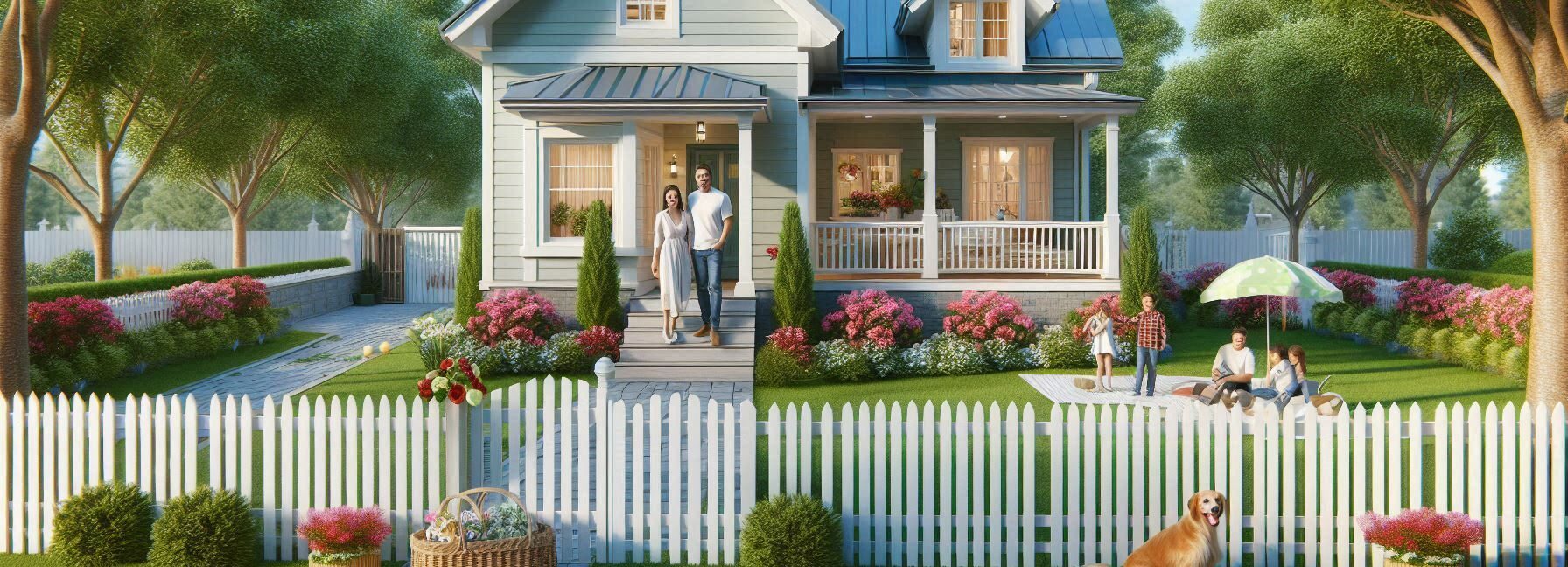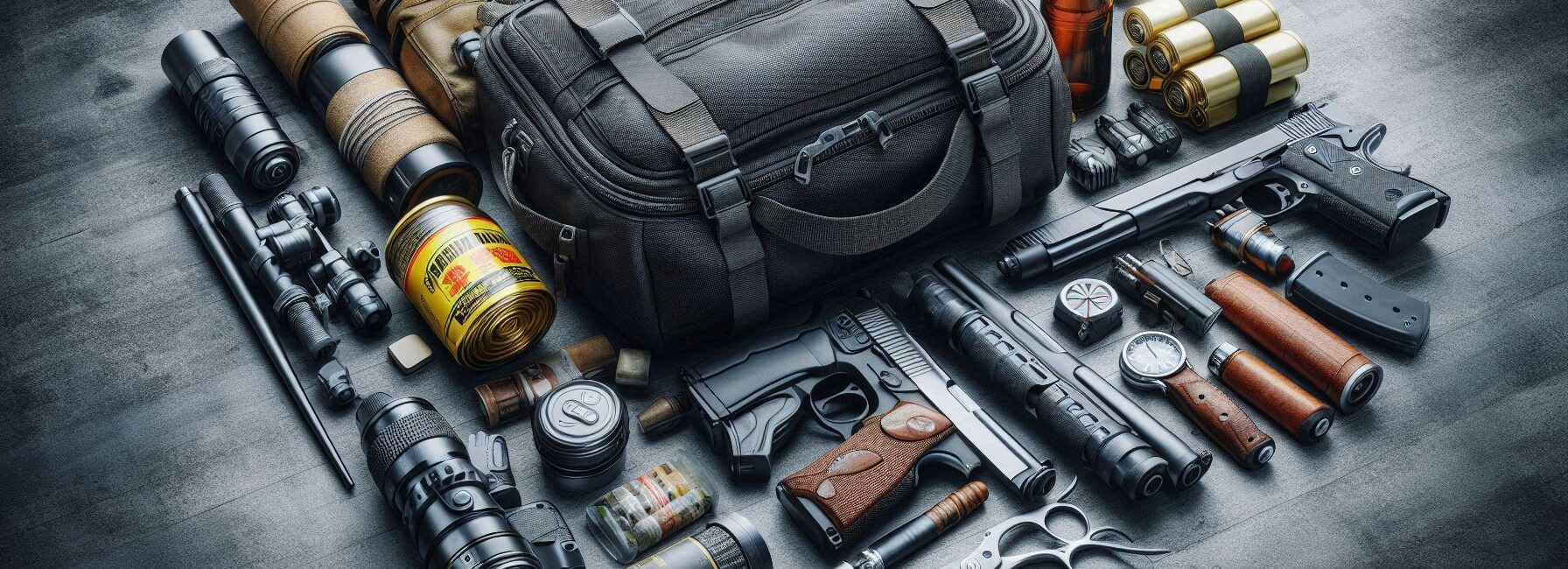Last Updated on November 2, 2025 by Kevin Collier
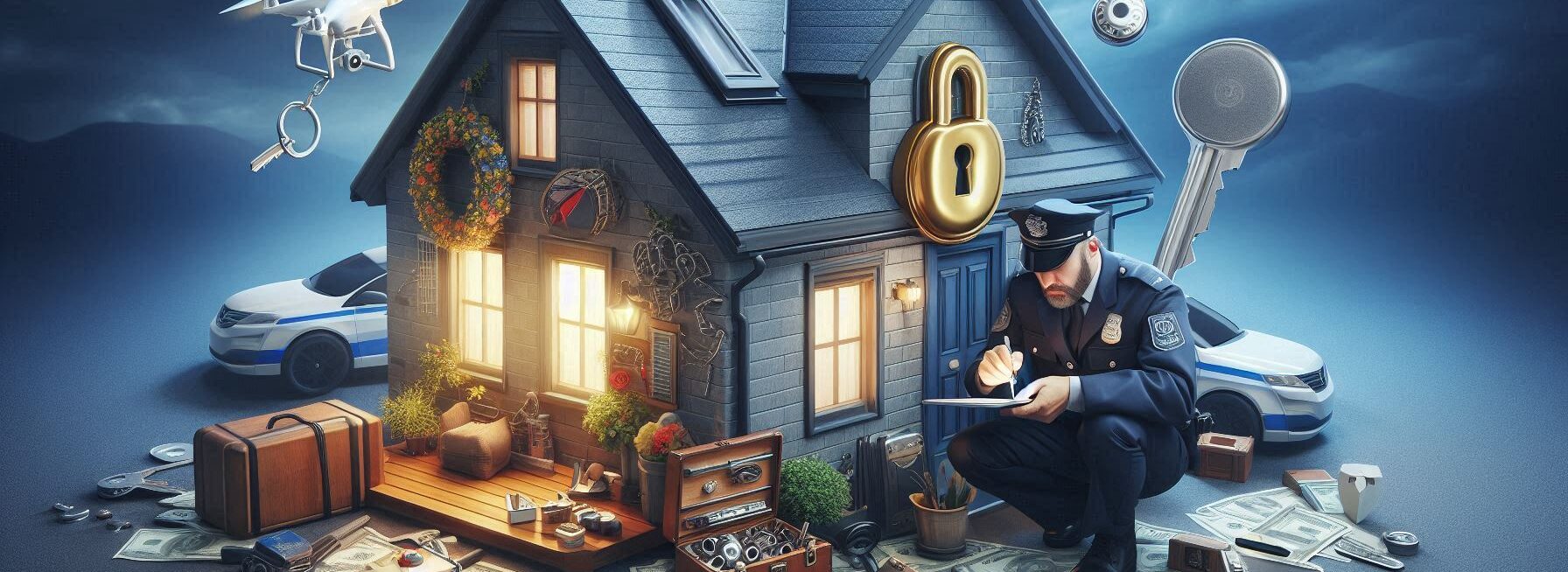
Top Takeaways and Key Concepts
- Inspect your home for weak points and reinforce doors, windows, and locks.
- Install motion-sensor lights and window security measures to deter intruders.
- Create a family emergency plan with roles, meeting points, and communication.
- Invest in smart security systems with cameras, alarms, and remote monitoring.
- Build a neighborhood support network for shared safety and emergency assistance.
Life can surprise you, right? One minute you’re sipping coffee, and the next, chaos is knocking on your door. Whether it’s a big storm, a sudden emergency, or Aunt Edna showing up with that legendary fruitcake (yikes), having a plan makes a world of difference.
Think about it. Just like you would set a snack out for your dog when he hears that treat bag, you gotta set things up for your home, too. A well-placed plan is like a cozy blanket on a chilly evening. Gives you comfort and warmth.
Please Note: This post may contain affiliate links. If you click one of them, we may receive a commission at no extra cost to you. As an Amazon Associate, I earn from qualifying purchases.
Start with your windows and doors. Check those locks, make sure they’re sturdy. You don’t want any surprise visitors that aren’t part of the plan. Even upgrading those little locks can make a big difference. You’ll feel a bit like a superhero, protecting your fortress.
Next, gather your essentials. Think of it as putting together a survival kit. Flashlights, batteries, some snacks (gotta have snacks), and maybe even some water. You’ll want to grab things that make you feel safe and a bit cozy. You can even stash a fun board game in there. A little fun never hurts.
Have a spot in your home where everyone knows to meet during a crisis. It could be the kitchen or even the living room. Just make sure everyone is on the same page. A bit of planning keeps the worry away, like a warm hug on a stressful day.
You can also stay updated with the news. It’s as easy as checking your phone. When you know what’s happening, you can make better choices. Feeling informed can turn anxiety into action.
Lastly, don't forget to take a breath. Panic can set in, but don't forget to stop and take a breath. Taking a deep breath can help you think more clearly. You can do this. Also, think about how much fun you'll have with your family while you get ready. Even the worst times can be made better by a little laughing.
So, sit back in that comfy chair, turn on your favorite playlist, and let's get to work on making your home safe. Who knows? You might even enjoy those planning meetings. And when Aunt Edna comes over, you'll be ready with a smile and a tasty treat. 🍰
Contents of This Page
*** Shop for Survival Gear - Tools - Kits ***
Survival Gear - Bags and Backpacks - Knives - Boots/Footwear - Communication
Outdoor Cooking - Gloves - Hydration - Dry Boxes - Water Filtration Systems
Tents - Sleeping Bags - First Aid Kits - Multi-Tools - Flashlights - Fire Starters
Navigation - Survival Food - Night Vision - Headlamps - Stun Guns - Binoculars
Assessing Vulnerabilities

Take a good look at your home. No, I don’t mean just checking if the lawn needs mowing—though it probably does! You want to assess potential vulnerabilities. Start by walking around your property like you're on an episode of “Survivor.” Look for weak points where someone could easily gain access.
Are there shrubs so thick that they could hide a whole army of raccoons? If so, cut them back! Believe me, a thick bush right next to an open window is the best way to say “come rob me.” Look for any evidence of wear and tear on doors and windows as well. It might be time to get a new door if it appears like it survived a run-in with Bigfoot.
And while we're on the subject of renovations, think about putting good locks on all of your doors and windows. A weak lock is like using a rubber band to keep Fort Knox safe—it's not going to work!
Strengthening Points of Entry
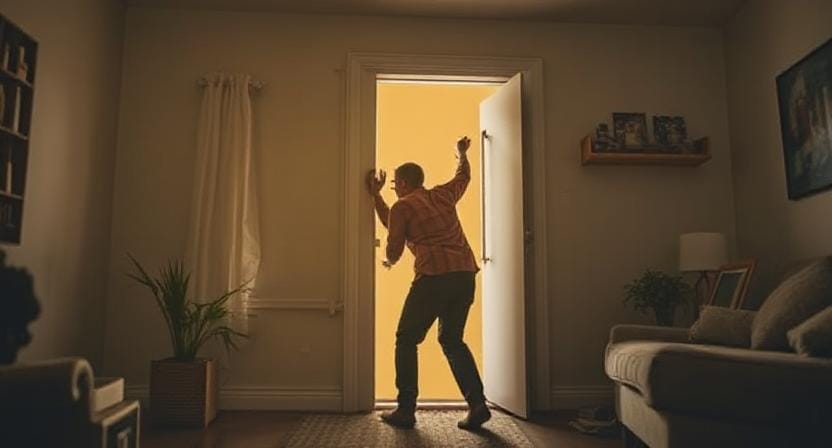
Let's talk about reinforcement now that you've looked at the weaknesses. You could think of this step as putting armor on your castle, but without the jousting knights (unless that's your thing). Start with doors. They should be solid-core, not hollow, because we want to keep intruders out, not just politely tell them to leave.
Next up are windows. Consider installing window locks or security bars if you're feeling particularly adventurous—or paranoid! And if you've got sliding glass doors? Those need special attention too! A simple wooden dowel placed in the track can thwart even the most determined burglar who thinks he can slide right in like he owns the place.
By the way, did you know that having motion-sensor lights outside can deter intruders faster than my kids running from broccoli?
These lights create an unwelcome spotlight when someone tries sneaking around after dark—making them think twice before attempting their grand entrance.
Creating a Family Emergency Plan
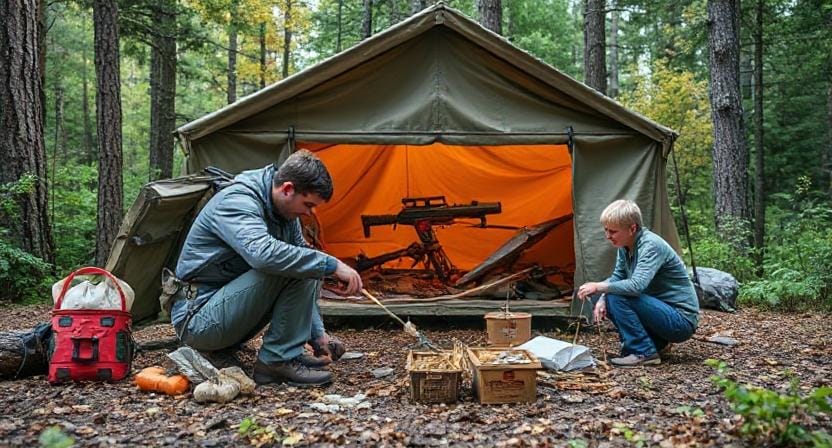
Alright folks, now that we’ve fortified our fortress against unwanted guests and creepy crawlies alike, let's discuss what happens when things go south—like really south. This is where having a family emergency plan comes into play. It sounds serious because it is!
Gather everyone together (yes, even the teenagers who’d rather be glued to their phones) and outline what each person should do during various scenarios—like fire drills but without the snacks afterward. Assign roles: Who grabs the emergency kit? Who checks on Grandma? And who gets stuck babysitting Fluffy?
Make sure everyone knows how to communicate during emergencies since cell service may go out faster than my patience when assembling IKEA furniture without instructions! Consider establishing meeting points both inside and outside your home in case you need to evacuate quickly.
Interestingly enough, practicing these plans can help reduce panic during actual crises—and give everyone something fun (and slightly embarrassing) to talk about later!
Investing in Security Systems
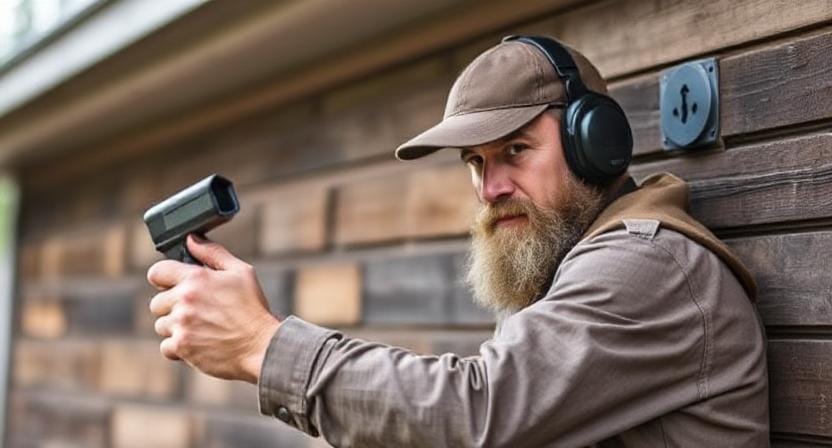
Let’s see: technology has come a long way since I was young enough not to care about locking my front door! Today’s security systems are smarter than ever—some might even say they’re downright genius-level intelligent (though I wouldn’t recommend asking them trivia questions).
Consider investing in cameras that allow you to monitor activity around your property from anywhere via smartphone apps—you could be sipping coffee at work while keeping tabs on everything happening at home! Some systems also include alarms that scream louder than my toddler when denied dessert.
Speaking of which, many modern systems offer features like two-way audio so you can yell at would-be intruders through speakers—even if you're miles away making awkward small talk with colleagues!
Community Support Network
All things considered, one of the best defenses against emergencies is community support. Knowing your neighbors isn’t just good for borrowing sugar anymore; it's about building relationships based on trust and teamwork during crises.
Start by introducing yourself (yes—even if they seem busy), sharing contact information so everyone knows whom to reach out during emergencies or natural disasters. Forming neighborhood watch groups can add another layer of safety; plus, you'll feel less weird walking down streets looking suspiciously at every passing car!
You might even organize regular meetings where people share tips on securing homes or preparing for emergencies while enjoying snacks—I mean food always brings people together!
Conclusion: Stay Prepared and Stay Safe
Wow, we really got into this, didn't we? We’ve talked about checking your home, locking doors, and even establishing family plans. It's like getting ready for a major trip, but instead of treasure maps, we're all about safety.
Look at it this way. Preparedness is your safety blanket. It doesn't imply you're always gazing about like a nervous squirrel. Nope! It's more about being comfortable and snug, knowing you've done your homework and are ready, just in case.
Getting ready can be like packing for a great trip. You gather supplies, set your plans, and, let’s be honest, it’s kinda fun. Like picking out your favorite snacks to take along. Who doesn’t want to snack while gearing up for the day?
Take a moment to chat with your family. Share your plans. Make it a fun family night where you figure things out together. Grab some popcorn, giggle a bit, and listen to everyone’s ideas. Little ones might have the best suggestions. Kids can think outside the box!
Remember, it doesn’t all have to be serious stuff. You can joke about Aunt Edna and her fruitcake while planning your escape route. A little laughter goes a long way, even in planning.
Now, when you’re out there fortifying your castle, be sure to celebrate those little wins. Found a great lock? High-five! Made a family plan? Sweet victory dance!
You’re not just building walls; you’re making your home a safe, loving space. And that’s something really special. So grab those snacks, gather your knowledge, and get started. You've got this! And hey, your castle is gonna be the best one on the block.
Frequently Asked Questions
What parts of the home should be reinforced first?
Start with doors and windows because they are the easiest entry points for intruders during a crisis.
Are motion-sensor lights useful in emergencies?
Yes, motion-sensor lighting helps deter unwanted visitors by automatically illuminating movement around your property.
Why is a family emergency plan important?
A family plan ensures everyone knows their role, where to go, and how to communicate during fast-moving emergencies.
Should I invest in smart security technology?
Smart security devices like cameras and alarms provide real-time alerts, remote monitoring, and added layers of protection.
How can neighbors contribute to home security?
Neighborhood support networks create extra eyes and communication lines, increasing community safety during crises.
What basic gear should be stored for home emergencies?
Keep flashlights, batteries, shelf-stable food, water, and emergency supplies stored and easily accessible for quick use.
How often should home security setups be reviewed?
Review systems regularly and update weak points as seasons change, vulnerabilities appear, or household needs shift.
Suggested Resources:
Home Security Tips
https://www.homesecurity.org/home-security-tips/
Emergency Preparedness Guide
https://www.ready.gov/prepare
Creating Family Emergency Plans
https://www.redcross.org/get-help/how-to-prepare-for-emergencies.html

Kevin Collier is a seasoned survivalist and expert in prepping and homesteading, contributing to WiseSurvive.com. With a deep-rooted passion for self-sufficiency and outdoor survival skills, Kevin shares practical advice, strategies, and resources to help individuals prepare for any challenge. His informative articles cover a range of topics, from essential survival techniques to sustainable living practices, empowering readers to thrive in any situation. Whether you're a novice or a seasoned prepper, Kevin's insights will inspire you to take charge of your readiness and build resilience for the future.

